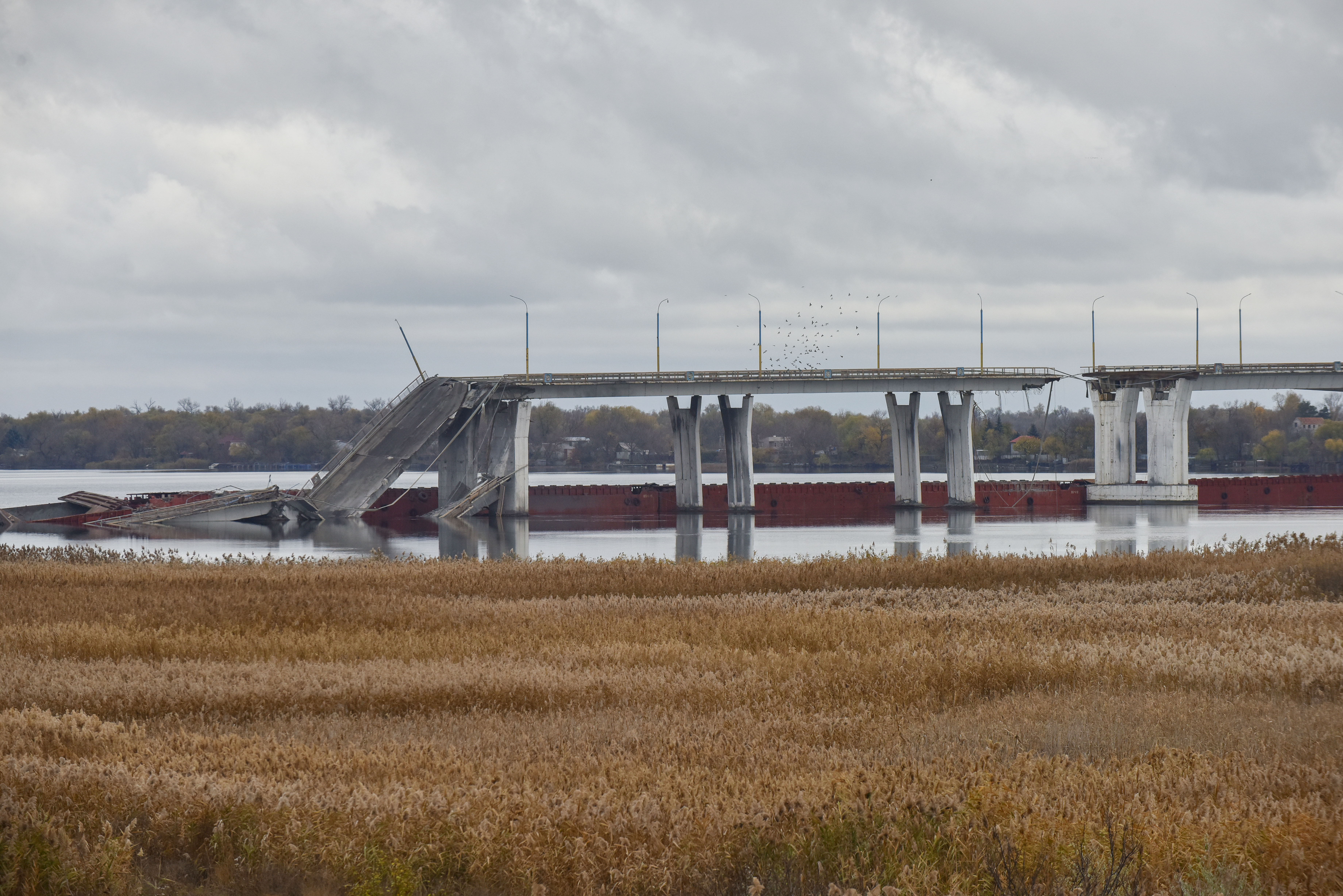IPI and its global network today mourn the loss of Bohdan Bitik, a Ukrainian journalist working as a fixer for La Repubblica, who was killed on Wednesday in a Russian attack near Kherson, southern Ukraine. Bitik was accompanying Italian reporter Corrado Zunino, who was wounded in the attack but survived. IPI denounces the deadly attack in the strongest terms possible terms and demands that those responsible for this war crime be found and prosecuted.
The suspected sniper attack on the reporters took place on 26 April, as Zunino and Bitik were by the Antonivskiy Bridge near Kherson. The bridge, which previously connected the right and left banks of the Dnipro river, currently demarcates territory under Ukrainian and Russian control.
“We were hit, I heard a hiss and I saw Bohdan on the ground, he wasn’t moving”, said Zunino, describing the attack as “most likely [carried out] by Russian snipers”. The Italian journalist was wounded in his right arm but managed to flee the area: “I crawled until I got out of the line of fire”, he added. “I ran until I came across a civilian’s car. I was covered in blood, I was taken to the hospital in Kherson.”
La Repubblica also quoted the journalist saying he and Bitik were ambushed and shot at despite wearing visible “PRESS” jackets. Zunino later received treatment for a shoulder wound at a hospital in Kherson and is in a stable condition. The body of Bitik, who was working with Zunino, could not be immediately recovered due to the risk of sniper fire.
“We are in deep sorrow that Ukrainian journalist Bohdan Bitik was killed and express our sincere condolences to his family and loved ones”, said IPI Executive Director Frane Maroević. “The cold-blooded murder of Bohdan Bitik and attempted murder of his Italian colleague Corrado Zunino demonstrates the continued danger facing war reporters in the country. We express our solidarity and praise the courage of all media workers who continue to report on the invasion of Ukraine. We firmly demand the prosecution of those responsible for killings of journalists. Killing of journalists is a war crime and there must be no impunity for its perpetrators.”
Maroević further called on all international media organizations working in the warzone to strengthen the safety of their international and Ukrainian colleagues, as well as to provide all necessary protective equipment.
According to Zunino, he and Bitik successfully passed three Ukrainian army checkpoints before reaching the Antonivskiy bridge, with Ukrainian forces having “let [them] pass without problems”. Located directly on the frontline, the Antonivskiy Bridge lies within what the Ukrainian army had earlier defined as a “red zone”, access to which is in most circumstances barred to journalists.
Ukrainian authorities condemned the incident as a war crime, however also noting that Zunino and Bitik had entered an area despite warnings by the Ukrainian military that doing so was unsafe. According to La Repubblica, both Zunino and Bitik were wearing bulletproof vests at the time of the incident, however Ukrainian army officials claimed that only the Italian journalist was wearing one.
Since the start of Russia’s full-scale invasion of Ukraine on 24 February 2022, at least 11 media workers have been killed in relation to their work. In 114 more cases, journalists have been wounded, come under fire, or were otherwise physically attacked by military forces. The Russian army was clearly responsible for most of these cases, IPI data shows.
